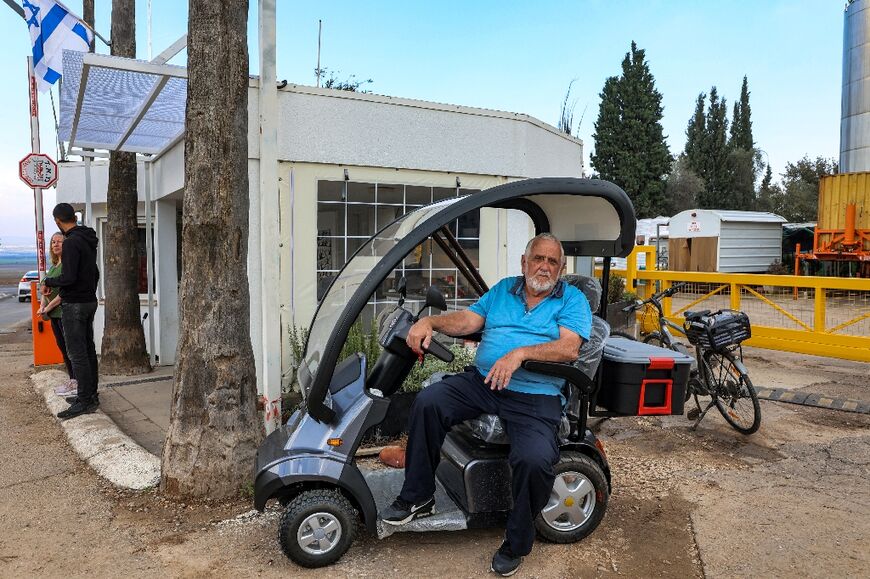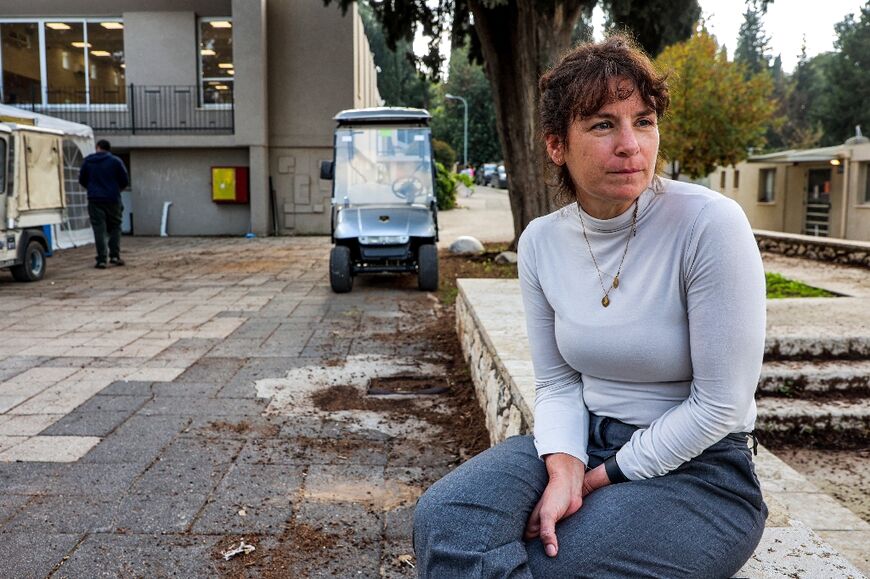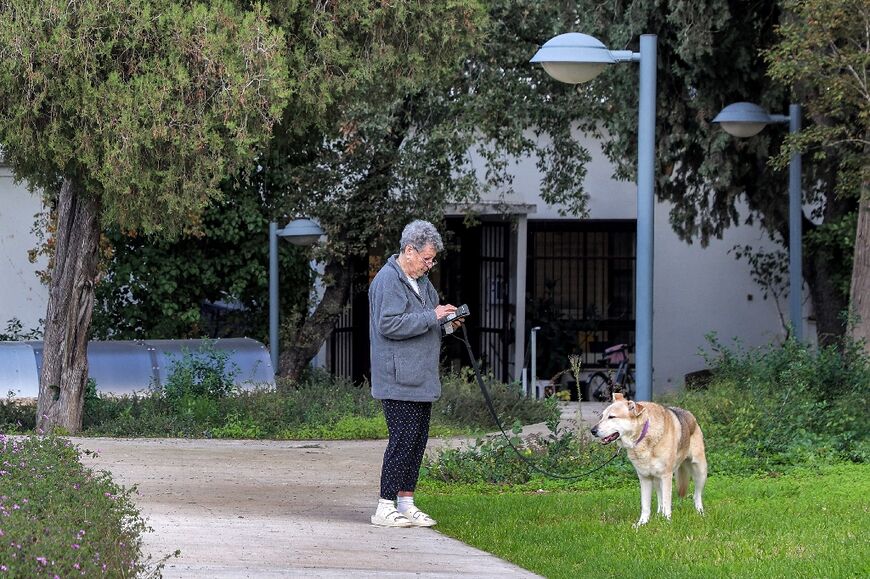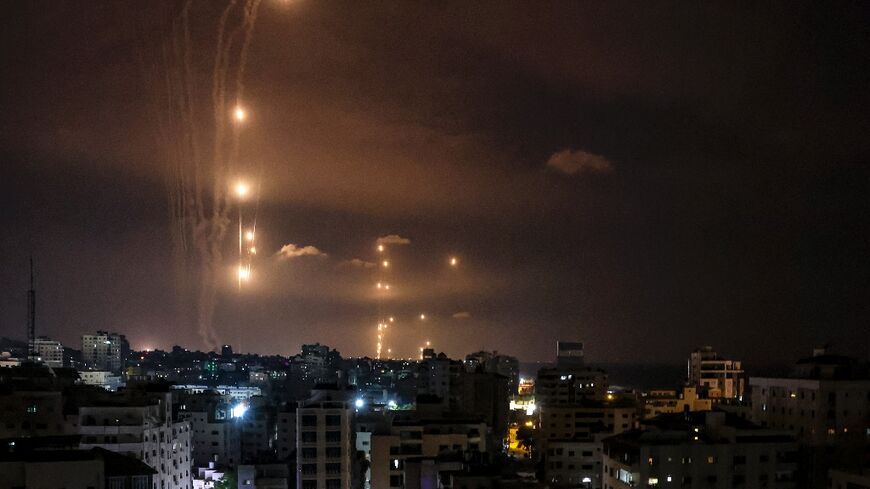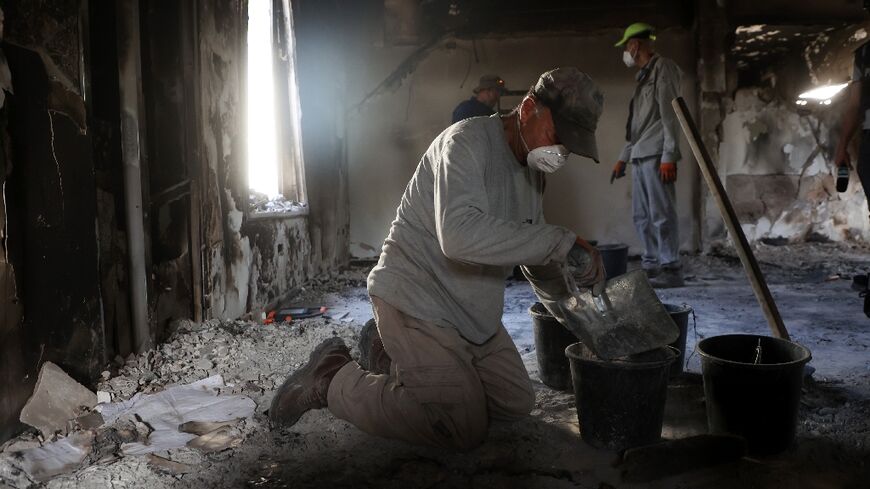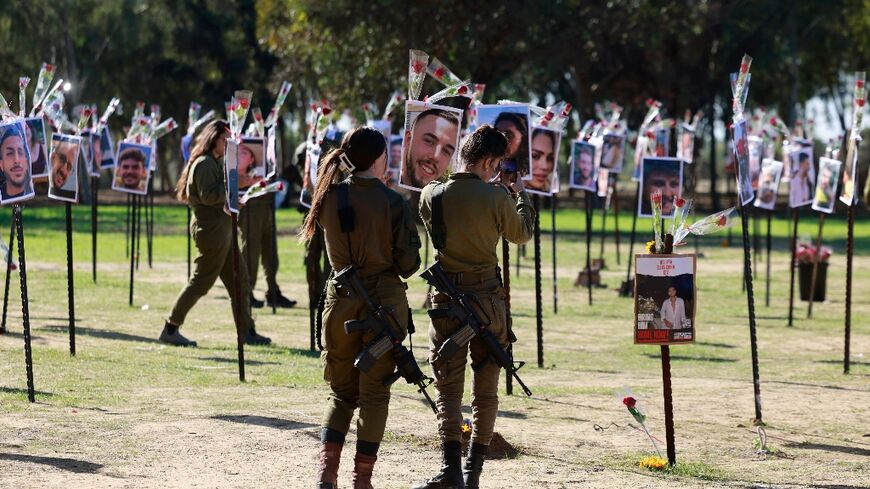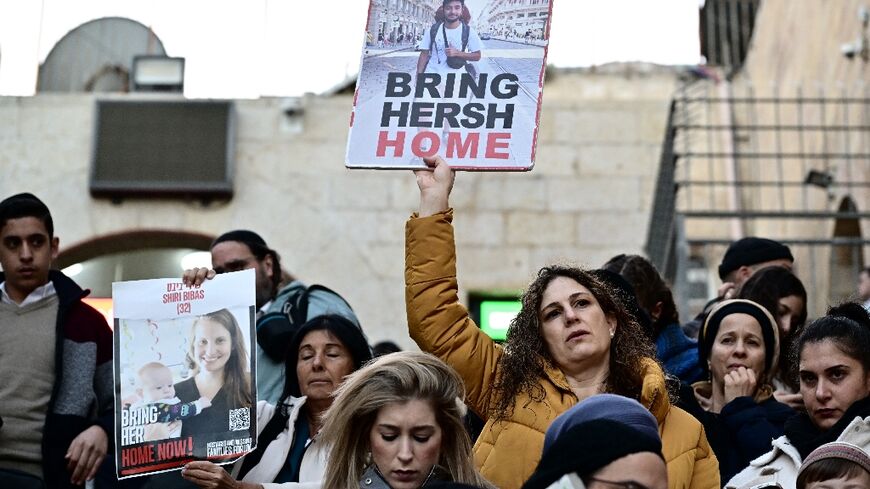Israel's kibbutzniks face long exile after Hamas attacks

Kibbutz Nahal Oz was supposed to celebrate the 70th anniversary of its founding near Gaza on October 7 -- the day Hamas militants launched their deadly attack on southern Israel.
More than two months on, its deeply traumatised residents are settling in for a year of displacement on the opposite side of the country.
With fighting between Israel and Hamas showing no sign of abating, kibbutzniks from 20 evacuated communities are making longer-term relocation plans from their homes near the Gaza Strip.
Some are moving to cities, others are staying on in hotels for now, and others still are being absorbed, at least temporarily, by other kibbutzim scattered around the country.
"I'd go back now, today, if I could," said Arie Oren, 69, a Nahal Oz resident who was shot in the shoulder on October 7.
"Most of us want to return, but it all depends on the security situation," he said, standing guard at the gate of Mishmar Haemek near Haifa in northern Israel.
Hamas fighters stormed across Israel's heavily fortified Gaza border on October 7, attacking military posts and communities near the frontier.
Some 1,200 people were killed, mostly civilians, while around 240 people were taken hostage, according to Israeli officials.
Nearly 18,800 Gazans have been killed since in Israel's counteroffensive, the health ministry in Hamas-run Gaza says.
Israel evacuated around 65,000 residents who were living up to 10 kilometres (six miles) from the Gaza border, with defence officials projecting the war may drag on for months.
Israel's defence ministry has declined discussing projected timelines and costs of the reconstruction of southern Israel.
Aviv Leshem, spokesman for the Kibbutz Movement, said that it could take 18 months or more to rebuild and repopulate the hardest-hit kibbutzim -- Beeri, Kfar Aza, Nir Oz and Nahal Oz.
- Home 'taken away' -
Fourteen people were killed in Nahal Oz and two residents remain held in Gaza, while one from the community of 450 remains missing.
Yael Raz Lachyani, Nahal Oz's spokeswoman, told AFP that around 70 percent of the kibbutz population has been housed in small dormitory rooms for the past 10 weeks.
In Mishmar Haemek's dining hall, a black banner calls for the release of the remaining hostages and the words "Nahal Oz is my home".
Despite struggling "with the grief, with the sadness, with the difficulties in each family," she said they voted to remain in Mishmar Haemek until next summer.
From the north to the south, similar and often heated discussions are happening among the displaced.
Those from Nir Oz have lived out of suitcases in the southern resort city of Eilat on the Red Sea.
Recently they agreed to move this month to five newly-built apartment blocks in the southern city of Kiryat Gat.
"We didn't have a lot of options," said Irit Lahav, Nir Oz's spokeswoman, with residents wanting to be able to reach their former community while also remaining at a safe distance.
"We've all gone through something very traumatic together, we don't want to disperse now," she said.
Returning to Nir Oz, however, may take as much as three years, she said.
Raz Lachyani said the kibbutz has the tools and know-how to rebuild, but "security is not up to us, dealing with terror organisations is not up to us, and that will be the main reason for people to come or not come back".
Nadav Tzabari, 34, moved to Nahal Oz in 2016 after he was wounded fighting in Gaza during Israel's 2014 war with Hamas.
Like many kibbutz evacuees, he wants to go back, but he shares a prevalent sentiment that return hangs on "how the war will end" and whether he will feel safe.
Two weeks after the war erupted, Tzabari said his house was hit by a rocket fired from the Palestinian territory.
"So even that tiny hope that the day after -- when we all go back to the kibbutz, we will have immediately our house back -- that thing was taken away from us, too," he said.


